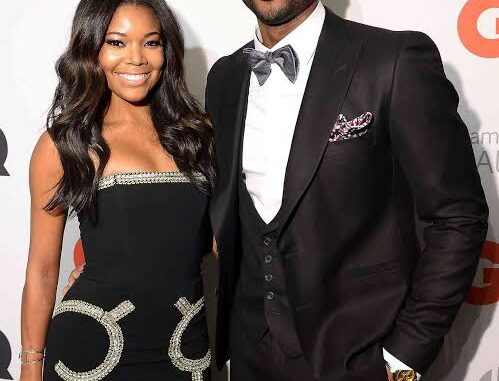
Dwyane Wade stepped off the court, sweat-drenched and triumphant. Another season, another championship won. As he high-fived teammates and exchanged hugs with coaches, his mind wandered to the windfall that came with this victory. Millions of dollars in bonuses and endorsement deals awaited him, but Wade had already made up his mind about what to do with it all.
He walked over to his wife, Gabrielle, beaming with pride as she congratulated him on the win. “We need to talk about the money,” he said, his voice barely above a whisper.
Gabrielle smiled knowingly. They had discussed this before, but now it was time to make it official. “You’ve always said you wanted to give back, Dwyane. This is your chance.”
The couple had always been passionate about philanthropy, but Dwyane’s platform as an NBA star amplified their impact. They decided to donate all his season’s winnings and endorsement deals to charities and homeless relief organizations. The amount was staggering, but for the Wades, it was about more than just numbers.
As news of their decision spread, reactions ranged from admiration to shock. Some people couldn’t fathom giving away millions of dollars, especially when many athletes struggled financially after retirement. Others hailed Dwyane as a hero, citing his commitment to using his platform for good.
The truth lay somewhere in between. Dwyane knew the value of money, having grown up in Chicago’s South Side, where financial struggles were a reality. He remembered nights spent in shelters, the uncertainty of where their next meal would come from. This experience shaped his perspective on wealth and privilege.
With great success comes great responsibility, Dwyane believed. His donations would provide shelter, job training, and mentorship to those in need. It was a drop in the ocean, but he hoped it would inspire others to follow suit.
As the Wades’ charitable foundation began to receive the funds, they worked tirelessly to ensure every dollar was put to good use. Dwyane’s teammates and opponents alike took notice of his generosity, and soon, more athletes started to follow his lead.
Dwyane’s decision wasn’t without its critics. Some argued that athletes deserved to enjoy their wealth, that philanthropy was optional. Others questioned whether his donations would truly make a difference.
Dwyane listened to the feedback, but his resolve remained unwavering. In a world where compassion often took a backseat to self-interest, he chose to stand out. For him, this wasn’t just about charity; it was about paying it forward, about creating a ripple effect of kindness that would outlast his basketball career.
As the seasons passed, Dwyane Wade’s legacy extended far beyond his accomplishments on the court. He became a symbol of hope, a reminder that even in the face of adversity, one person could make a difference. And when his playing days were over, his impact would continue to inspire generations to come.
Leave a Reply